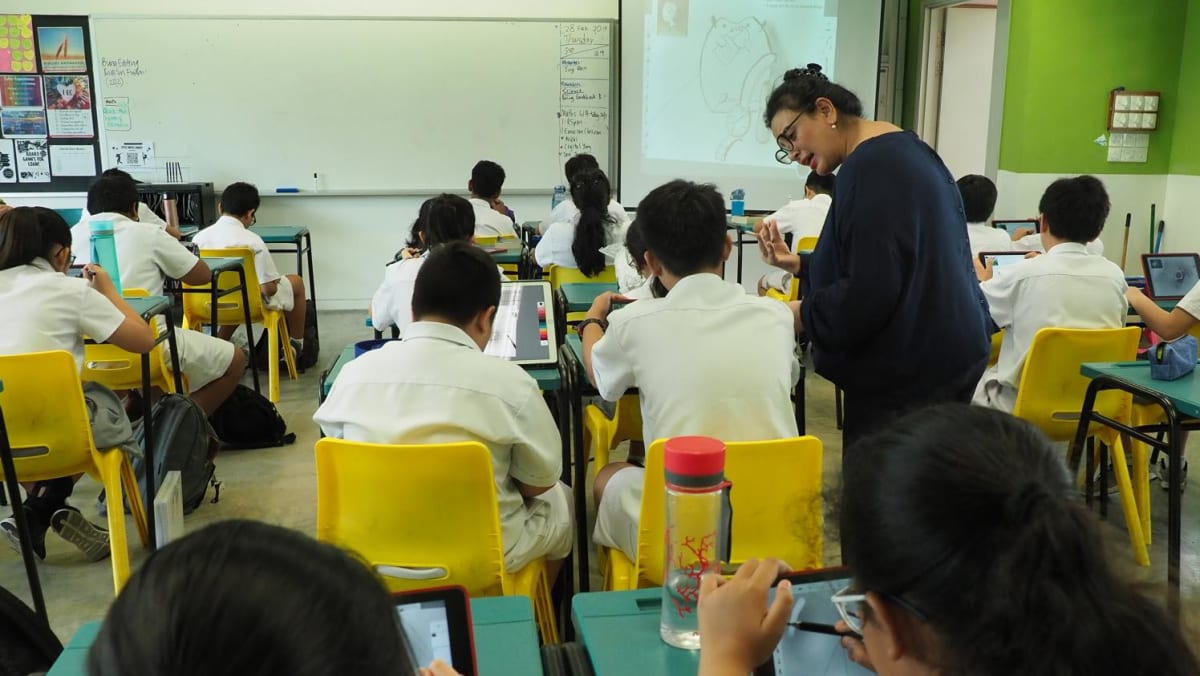SINGAPORE: Reducing the duration of postgraduate teacher training in Singapore from 16 months to 12 could make a difference in attracting applicants, but won’t be as important as making the programme both effective and efficient, aspiring educators said.
Earlier this week, Education Minister Desmond Lee announced that the training period for the National Institute of Education’s (NIE) Postgraduate Diploma in Education (PGDE) would be shortened by four months.
This is part of a regular review of teacher preparation programmes, according to the Ministry of Education (MOE) and NIE.
“The review builds on the strengths of the current PGDE, and will not affect the rigour of the programme,” the agencies told CNA in response to queries about the change.
The review – by educators and leaders from MOE and NIE – is ongoing, with details and the start date of the shorter diploma programme to be announced later.
In 2016, the PGDE programme was extended from 12 months to 16 months.
CNA spoke to three prospective teachers and one teacher who recently completed the programme, about the significance of the the latest change.
Mr Linus Chen, currently in the programme, believes a shortened course could still be effective as long as useful classes are retained.
These include educational psychology and subject-specific classes, though there are others that feel redundant due to overlaps, the 26-year-old told CNA.
He said the contract teaching stint before starting the programme was “very, very important”, both for schools to assess trainees and for trainees to see if they are suited to teach.
According to MOE, this stint generally lasts at least four months.
The ensuing 16-month NIE programme then includes another two stints of teaching in schools – four weeks of teaching assistantship, then 10 weeks of teaching practice towards the end of the course.
“To be very frank, the best way to learn is to do it on the job,” said Mr Chen. “Trying to learn teaching without having real students is like trying to learn driving without having a car.”
What is valuable about NIE’s programme is having time to reflect on past teaching experiences and sharing ideas with friends, he added.
A junior college teacher who switched careers and attended the NIE programme last year also said the teaching stint before the course was the “most valuable part”.
Shortening the NIE course is unlikely to make a difference to the quality of the programme, said the man, who declined to be named.
“Teachers usually (give) feedback that most of what is taught in NIE is not applicable on the ground in schools anyway,” he added.
“Some other modules that took place during our year at NIE felt unnecessary or cursory, so I do feel the efficiency of the training duration – rather than the length – is what should be looked into.”
From 2022 to 2024, around 390 student teachers enrolled in NIE’s postgraduate diploma programme each year. They were either fresh graduates or hailing from different industries.
ATTRACTING TEACHERS
In announcing the review, the education minister said it was to meet the learning needs of an “increasingly diverse” teaching force.
Mr Lee also said MOE was redoubling efforts to attract teachers and welcome people with different life experiences and skills, including those making a career switch.
One mid-career switcher who has applied to NIE’s programme said the four-month reduction would make a “tangible difference” for him.
It would make the programme “less daunting” for new applicants from a “sunk cost perspective”, said the man, who took a pay cut to join teaching. He declined to be named in this article.
He too said that what mattered more was making the training effective and helping teachers adapt to the real classroom environment.
“I can only hope that the truncation of the training period is due to a meaningful consolidation of training content, and not a removal of important training opportunities,” he said.
